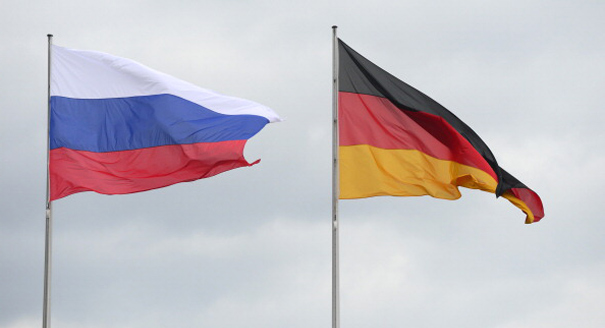On April 1, I published an April Fools’ Day piece here on Carnegie Europe’s Strategic Europe blog. A lot of people liked it, a good number of quite serious people were hoodwinked by it, and I even received some e-mails with juicy insults, accusing me of things unfit for publication.
One response, however, stood out. It came from a rather famous retired American academic, and his unease about my joking at the expense of German foreign policy was obvious. He wrote:
Mr. Techau’s performance reminds us that the cultivation of suspicion of Germany’s loyalty to “the West” is at least as old as [former German chancellor Konrad] Adenauer’s visit to Moscow in 1955. It coincides with the passing of a very great European, [former German foreign minister] Hans-Dietrich Genscher.
Here, in slightly modified form, is what I wrote back to the retired professor:
You are right, of course, when you say that my piece uses the fear of German unreliability in its commitment to the West as its driver. I have always tried to defend my fellow countrymen from some of the most ludicrous accusations against them, especially when it comes to the alleged closeness of the German political class to Russia. These accusations are often hopelessly overdone, sometimes deliberately so. But at the same time, there are worrying signs that must not be ignored. By highlighting them in an indirect way in my April Fools’ Day joke, I tried to do just that.
There are primarily two aspects of German foreign policy I am concerned about.
First, German Westbindung, or integration with the West, is a fateful question, not just for Germans, but for all of Europe. Yet Westbindung is by no means a done deal. By instinct and in terms of its political culture, Germany is only partly a Western country. Berlin’s big temptation is not going East to Moscow but going it alone, positioning itself as an in-between country, equidistant from Washington and Moscow.
This is a very dangerous temptation. Germany, in my opinion, can be at peace with itself and its neighbors only as long as it is firmly embedded in the family of Western nations, even against some of its political and cultural instincts. So Westbindung needs to be fought for on a daily basis, whether that comes in the framework of Germany’s role in NATO, its essential role in the EU, its performance at the UN, or its role as a security provider in Europe.
Second, and much more importantly, there is a reason why I made the German foreign minister, a Social Democrat, the subject of my joke. In Germany’s political debate, a very narrow, historically warped, and therefore misleading interpretation of Ostpolitik prevails. This misreading is omnipresent in the German debate, across the political spectrum, but Social Democrats in Germany are especially prone to falling for it.
This interpretation essentially believes that the original Ostpolitik of the 1970s was about the soft parts of détente—that it was just about constructive outreach to Russia, offering partnership, finding common ground, building trust, and so forth. This reading overlooks the hard part of the equation, namely that Ostpolitik was possible (and ultimately successful) because it was done from a position of strength, which was provided by the United States via extended deterrence. The common view also likes to ignore the fact that former German chancellor Willy Brandt, Social Democratic politician Egon Bahr, and the other proponents of Ostpolitik had to coordinate every single step very closely with Washington. Bahr was on the phone with former U.S. secretary of state Henry Kissinger all the time.
The current German foreign minister used the myth of this depleted version of Ostpolitik in the speech he gave on assuming the role of chairman in office of the Organization for Security and Cooperation in Europe in January 2016. The problem is that dealing with Russia, in the 1970s as now, does not only require the soft approach. It also needs dialogue and cooperation based on Western strength. That is what happened, at least partly, in the way NATO and the EU responded after Russia’s 2014 annexation of Crimea and aggression in eastern Ukraine.
And yet, this strength is at permanent risk, and many German politicians are creating the impression that Germany can somehow engage Russia based on its goodwill alone and on the assumption that Moscow’s cost-benefit calculations are similar to Berlin’s. They are not. This is why Germany needs to be so careful when it talks about détente while forgetting about the robust side of engagement, which is much less likable than the fairytale version.
And that is why I decided to raise the issue in my April Fools’ Day piece.


-2.png)

.png)

.png)